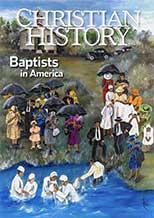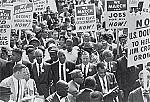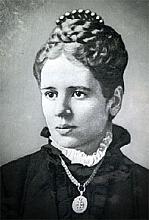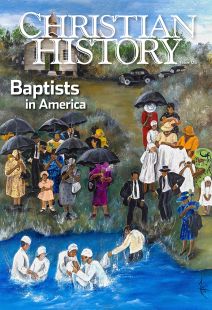All for Burma: Adoniram and the three Mrs. Judsons
Adoniram Judson couldn’t sleep. In fact, the noises coming from the room next door were so disturbing that he feared for the life of the person there. When morning broke, 20-year-old Judson learned from the innkeeper that a man had indeed died of an illness in the neighboring room overnight. Judson was stunned to discover that this man had been none other than his college friend Jacob Eames.
As a student Eames had led Judson to doubt his childhood faith. Now, reeling from Eames’s untimely death, Judson reconsidered his commitment to God. He soon enrolled in seminary and dedicated himself to missions service. In 1810 he and his classmates established the country’s first mission society, the American Board of Commissioners for Foreign Missions (a Congregationalist group).
Visiting the Hasseltine home as part of this effort, Judson was smitten with the family’s youngest daughter, Ann. He soon proposed marriage, asking Ann’s father:
whether you can consent to part with your daughter early next spring, to see her no more in this world . . . whether you can consent to her exposure to every kind of want and distress; to degradation, insult, persecution, and perhaps a violent death. Can you consent to all this, for the sake of him who left his heavenly home and died for her and for you; for the sake of perishing immortal souls; for the sake of Zion, and the glory of God?
Ann and her family struggled with this request, ultimately deciding to trust her future to God. Adoniram and Ann were married in 1812 at the ages of 24 and 22, and immediately set sail for India.

Buy Christian History #126 Baptists in America.
Subscribe to Christian History.
Congregationalist to Baptist
On their long voyage, the Judsons studied the Bible and embraced Baptist convictions. Ann wrote in her journal: “I have been examining the subject of baptism for sometime past, and, contrary to my prejudices and my wishes, am compelled to believe, that believers’ baptism alone is found in Scripture.” American Baptists organized the Triennial Convention to support their unexpected new missionaries.
The Judsons settled in Burma and embarked upon Bible translation and evangelism efforts. They endured multiple challenges: illness, living in a foreign culture, their children’s deaths, and Adoniram’s imprisonment. Soon after Adoniram was released from captivity, Ann, who had sacrificed her health for his welfare, passed away at age 36. Her sacrifice and the many letters she had written home to curious audiences describing their endeavors made her one of the most beloved missionary heroines America has ever known.
After an extended period of mourning, Judson resumed his missionary work in a different part of Burma. In 1834 he married Sarah Boardman (1803–1845), the widow of another American missionary there. Together they evangelized and translated the Bible among the Burmese and the Karen peoples. After 11 years and the birth of eight children, Sarah too died, a victim of a “wasting disease,” one of many illnesses that so often ravaged early missionary communities.
Judson returned to the United States on furlough and commissioned popular author Emily Chubbuck (1817–1854) to write a biography of Sarah. Soon, to the surprise of many, Adoniram and Emily announced their engagement. Some Americans were scandalized at the idea of Judson marrying a much younger woman whose vocation did not seem as honorable as those of his previous wives. However the pair married and served happily together in Burma until Adoniram’s death in 1850. Emily passed away four years later.
The legacy of Adoniram and the three Mrs. Judsons encouraged thousands of Americans to faithful Christian commitment and led many to serve as missionaries themselves. For more on the lives of the Judsons, see Christian History issue #90.
By Melody Maxwell
[Christian History originally published this article in Christian History Issue #126 in 2018]
Melody Maxwell is assistant professor of Christian studies at Howard Payne University and the author of two books on Baptist women, The Woman I Am and Torches in the Corridor.Next articles
“That’s where I used to go to church”
Black Baptists and white Baptists shared something important in the twentieth century: a penchant for splitting
Barry HankinsPreachers, organizers, trailblazers
Some passionate men and women you may not know who carried forward the Baptist tradition in the United states
Mandy E. McMichaelSupport us
Christian History Institute (CHI) is a non-profit Pennsylvania corporation founded in 1982. Your donations support the continuation of this ministry
Donate






